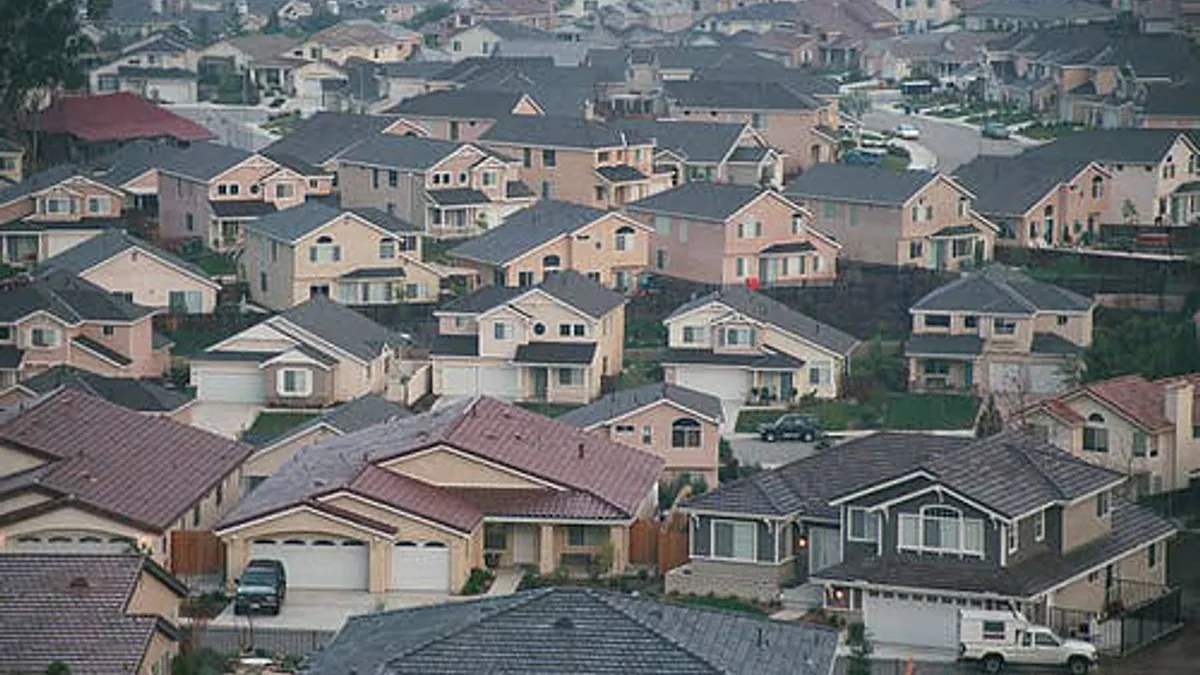Dive Brief:
- The Biden administration should quickly update energy efficiency standards for new federally-supported homes, Sen. Jeanne Shaheen, D-N.H., and Sen. Rob Portman, R-Ohio, wrote in a Dec. 19 letter to the departments of Housing and Urban Development and Agriculture and the Office of Management and Budget.
- Efficiency standards for homes purchased with the support of federally backed mortgages and federal housing programs were last updated in 2009, the bipartisan duo noted. “Homes built to these outdated standards will be in use for decades,” they wrote, generating excess pollution and high energy costs for residents.
- Updating the standards could save households in a federally supported single-family home almost $2,800 on utility bills over 30 years, and more than double that amount in net savings when other benefits, such as health outcomes, are included, according to research by the American Council for an Energy-Efficient Economy, or ACEEE.
Dive Insight:
The savings may seem modest, but Shaheen and Portman said an estimated 5.8 million new homes will receive federal loans or grants by 2050.
“These homes make up about 20% of all new single-family residences and one-eighth of new units in multi-family buildings and would primarily benefit low- and moderate-income households,” the lawmakers wrote. “Updating the standards would ensure that new homes are built with measures that lower energy bills and make homes more comfortable, such as insulation, lighting and heating and cooling equipment.”
New federally supported homes are now required to meet the 2009 International Energy Conservation Code. Federal agencies have determined the 2021 IECC standards would improve efficiency and it is now up to OMB to take action on their determinations, Shaheen and Portman said.
The North American Insulation Manufacturers Association, the U.S. Green Building Council and ACEEE back the senators.
“The government is still supporting loans for new homes built with old, outdated technology, and that leaves the residents with high energy bills,” ACEEE Executive Director Steven Nadel said in a statement. “Congress directed the agencies to update the efficiency rules for these homes, but it’s taking far too long.”
“As heating costs jump in much of the country, the administration should ensure homes are built to code to reduce families’ costs for years ahead,” Nadel said.
Housing accounts for 20% of U.S. greenhouse gas emissions, said Elizabeth Beardsley, senior policy counsel for the Green Building Council. “It makes no sense for the federal government to continue supporting the construction of unsustainable, inefficient housing,” she said.















